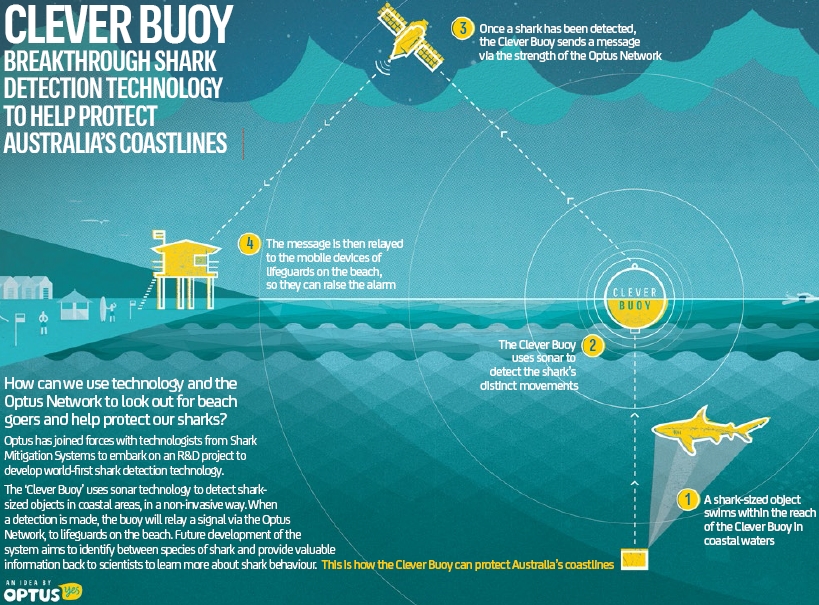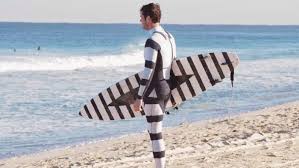Article published in November 2015, as part of a compilation of international expert opinions about shark reppellent systems. the topic developed in this interview focuses specifically on innovations. http://californiametalphoto.com/blog/2015/9/shark-repellent-responses
(The site has closed for a few months, that's why I'm republishing my interview here)
"I am not ready to entrust my life or my children’s to an electronic gadget"

It is common knowledge that the regular practice of water sports & water based activities provides wellbeing to many people across the globe, thus benefitting their mental & physical state and helping them to balance their life. Therefore, not being able to access the ocean while living on a tropical island is a real torment, especially when you’ve been born & raised by the sea.
With each new attack, a choir of so called “experts” implicates and pinpoints “careless” or "risky" human manners, but in some places (such as Reunion Island and Recife in Brazil) there are no more “safe conducts”: the simple fact of entering the water is a risky behavior, where you are putting your life on the line!!
In many places, water sports & activities were able to be developed and thrive thanks to the fishing pressure exerted on sharks, but here, the lack of foresight & consideration from the authorities about this extreme danger led to the imposed total ban on surfing and swimming.
You have to understand that we do not try and fight the shark conservation effort of the past 15 years (which naturally led to the increased numbers of predators) but we do protest about the implementation of marine reserves right in the middle of recreational seaside areas, as it is the case in Reunion Island. Protecting potentially dangerous sharks in an aquatic kindergarten is pure madness and should incur responsibilities.
It is important to note that sharks are neither evil nor good, they are just wild animals that do not experience mercy, and which consider humans as much of a danger as a mere prey. The problem with shark attacks is that modern society refuses to accept our ancestral common sense: when faced with a predator, humans have no choice but to act as a predator also. This basic principle is the very reason which has enabled us to survive as a species since the dawn of humanity, and it is astonishing that some modern conception of “romantic ecology” would have us to believe in pacific cohabitation, even though it’s impossible.

In this context, shark attacks appear like a powerful symbol of nature fighting back and taking it on to its main enemy, us...This symbol is exacerbated with surfing (a “useless” hobby) – surfing -- a symbol of leisure and free time, the culmination of industrialization’s progress. Therefore, any security steps toward a regulation will be resented as a “massacre” of those “pillars of the marine ecosystem” to the sole benefit of an egoistic leisure, thus leading to mass (media) hysteria.
Ocean analysts base their opinions on a basic principle: "We do not belong there, so it is for us to adapt." Unfortunately, reducing prevention to a mere compliance with safety rules cannot be generalized. The risk in Hawaii for example (where almost only tiger sharks are incriminated), is extremely low with only 6 deaths over the last 35 years, despite an extremely widespread practice of surfing among its 1.4 million inhabitants and also among the 7 million annual tourists!
On Reunion Island on the other hand (where mostly bull sharks are incriminated), we had 7 deaths between 2011 and 2015, for only 800,000 inhabitants, 400,000 tourists, and fewer than 1000 practitioners subjected to a shark attack risk since 2012! It’s thus obvious that you cannot compare situations & dangers which are so different in nature.
There are places where sharks represent a very small risk, and where a simple “risk assessment & education” might be sufficient indeed, like in the USA where you had only 3 deaths to shark attacks between 2011 and 2015 for a population of 330 millions (Hawaii, Bahamas & Porto Rico included), with 3.1 million surfers, and tens of millions of bathers.
Since the beginning of 2015, while our ocean is banned & virtually deserted, we’ve had 2 deaths already, and 0 for the entire USA. This means that the risk of a shark attack in Reunion Island is several thousand times higher than elsewhere else. Proportionally if the United States were subjected to the same risk, there would be thousands of deaths each year. In this case, would “specialists” still try and justify shark attacks through a simple problem of "bad risk assessment" and “wrongful behavior”?
Moreover, it is unfair to compare a shark attack with drowning, jellyfish sting, injury by a falling coconut or injury due to a “selfie”. These kinds of comparisons (used solely to discredit & marginalize the media coverage surrounding shark attacks) are, according to communication experts, a "manipulation of statistics".
Furthermore, after each and every shark attack, it has become a routine for “specialists” and/or NGOs to intervene and to lecture us about the "100 million sharks which are killed every year by humans", thus diverting the public attention from the attack and reversing the roles with the shark then becoming the victim.
There is also some exaggeration (lies?) about shark populations waning. Indeed, preservation actions conducted for the past 15 years are bearing their fruits, and shark population seems to be on track to recovery. Unfortunately, this kind of data is not "politically correct" and goes against vested interests about oceans resources grabbing and is helped by context of ultra alarmism.
We have to remain vigilant about the fact that the preservation & the protection of the oceans (and of their inhabitants) does not hide more “sinister” plans about the potential exploitation of natural resources (fishing stocks, minerals, etc..) and does not turn into a moneymaking business.
Our position is that we are for science but against dogma, and some “specialists” theories that are littered with contradictions. For example, how can they say that overfishing could lead sharks to come closer to shores, when speaking about species such as bull sharks (which are known to be living in coastal biotopes anyway) fully adapted to fresh water and therefore not impacted by overfishing?
Similarly, linking shark attacks with global warming or El Nino, beg the question about the credibility of the so called “experts”, who do not hesitate to use “apocalyptic fears” to divert the opinion from the evidence: a direct correlation between increased populations of sharks and increased attacks.
The failure of the Réunion Island scientific program CHARC (€ 800,000 over 2 years, 2011-2013, with 80 tagged sharks) for risk reduction purposes should be an example for the entire planet. As foresaw in the initial evaluation report (“Rapport d’évaluation du projet CHARC, mars/avril 2012, F. Gerlotto) : "It is absolutely certain that if these results (in terms of governance) did not appear, it is because of the chaotic nature (in the sense of deterministic chaos) of the system which prohibits any prediction. Therefore, we can give up any hope of risk management through an environment study, and it will be useless to try any other scientific activities in that way. "
Simply put, it is absolutely unrealistic to seek to establish sufficiently reliable patterns to risk human lives in such a difficult area to understand such as the ocean and the unpredictable wildlife’s individual behaviors.
There is also a real ethical issue regarding the tagging programs of many potentially lethal sharks and their monitoring in the heart of a seaside area full of human activities...
Marking dangerous predators and releasing them right in front of the most popular beaches of the island, and latter on being able to study the attacks. Wouldn’t that be similar to a "scientific experimentation” with “human guinea pigs"?
All those dogmas and manipulations will lead to an increasing number of attacks worldwide and to an increasingly problematic access to the ocean. The “return to wilderness” policies, with the reintroduction of all sorts of harmless or dangerous beasts will lead to a gradual disappearance of human activities in many places. Our ocean here is already on its way to returning to its “wilderness state”, whatever the social, human and economical toll.
To that regard, Reunion Island is following the path of Recife in Brazil, which I visited in April 2014, only to find out that 20 years of “research” and ban had led to the permanent closure of the ocean. Some local actors there made me understand that the bull shark, a prolific species, is a plague, some kind of "opportunistic ocean rat." Whenever an area of human activity constitutes a suitable habitat, with plenty of fresh water and a lack of territorial pressure (through fishing), it leads to a tragedy.
This means that for us, the "hotspots" of the planet, the only effective methods in 2015 are still the implementation of fishing gear (nets and drum lines) in the areas to be protected. Those methods’ effectiveness has been proven in Australia and South Africa for the past 20 years by significantly dropping the risk on protected beaches. Sharks are intelligent animals that have crossed ages, and like all wild animals, they learn to avoid areas that are dangerous to their survival.
No one wishes to empty the ocean of all sharks; this is just about preserving a part of coastal areas for human activities, applying territorial pressure through fishing.
Any other non lethal methods either lack of perspective or have shown their limitation.

We consider the zebra patterns logic to have limited effectiveness because often when there are waves, the water is cloudy and sharks won’t use their sight to hunt in those situations. It is also illusory to imagine preventing attacks with real-time detection of tagged sharks via satellite. In addition to capture & marking difficulties along with the limited lifespan of the tags and the often too low percentage of tagged sharks, the main problem will be about spreading the alert and the immediate evacuation scheme.
The method (invented in Reunion Island) of employing underwater lookouts may be considered but only in clear water (and thus in small waves conditions) as visibility will be insufficient in bigger waves. Furthermore, while seeking a "scientific validation/approval", this method has become too complicated and costly to expect a broader deployment. Indeed, it now necessitates a heavy protocol, with a total of 35 peoples involved, 2 boats, cameras etc... just to secure a group of surfers!
Regarding the so called “innovative” devices, especially the semi-rigid and the electromagnetic barriers, they could be of interest and we have met almost all their inventors/developers in the past three years here in Reunion Island.
Unfortunately, all of these methods are still experimental and their standardization is impossible due to prohibitive implementation and maintenance costs.
The non-lethal nets were a failure on the island of Reunion, because the preventive fishing of shark around nets, yet promised was banned after a greenies procedure at the administrative court. Installed in December 2015, they were gradually abandoned after 2 indoor attacks on August 27, 2016 and June 18, 2017. They were destroyed by the swell. more than 4 million euros have been spent. Currently the company that developed this concept is suing the city hall claiming € 700,000 in damages. More details here http://www.requinsreunion.fr/index.php/english/35-last-shark-attack-in-reunion-island-a-hole-in-the-net-why-we-thought-it-will-be-ok and http://www.requinsreunion.fr/index.php/english/39-how-come-the-shark-got-through-the-net-the-fox-shark

That is the recent conclusion (August 2015) supported by the town of Saint-Pierre, which has just abandoned the idea of securing its beaches through innovative measures after three years of feasibility studies!
We should also ensure that this trend of "nonlethal innovations”, greatly supported by the animalists do not become a money making scheme cashing on our fears and feeding the controversy by maintaining the illusion of a "magic solution" that would preserve both predators and humans.
Jean François Nativel
Ocean Prevention Reunion Association Secretary http://www.opr.re/
Author of the book "Sharks in Reunion a modern tragedy" (November 2015), updated English translation available in October 2018 http://www.requinsreunion.fr/
NB : Since the beginning of humanity, we have been able to face the threat of predators. In the 21st century, human society seeks to reinvent ancestral relationships with wildlife which has though not evolved itself. Scientists must stop playing at God with sharks and making believe it is possible to coexist with them as it is unrealistic .
Same failure in Australia : link

